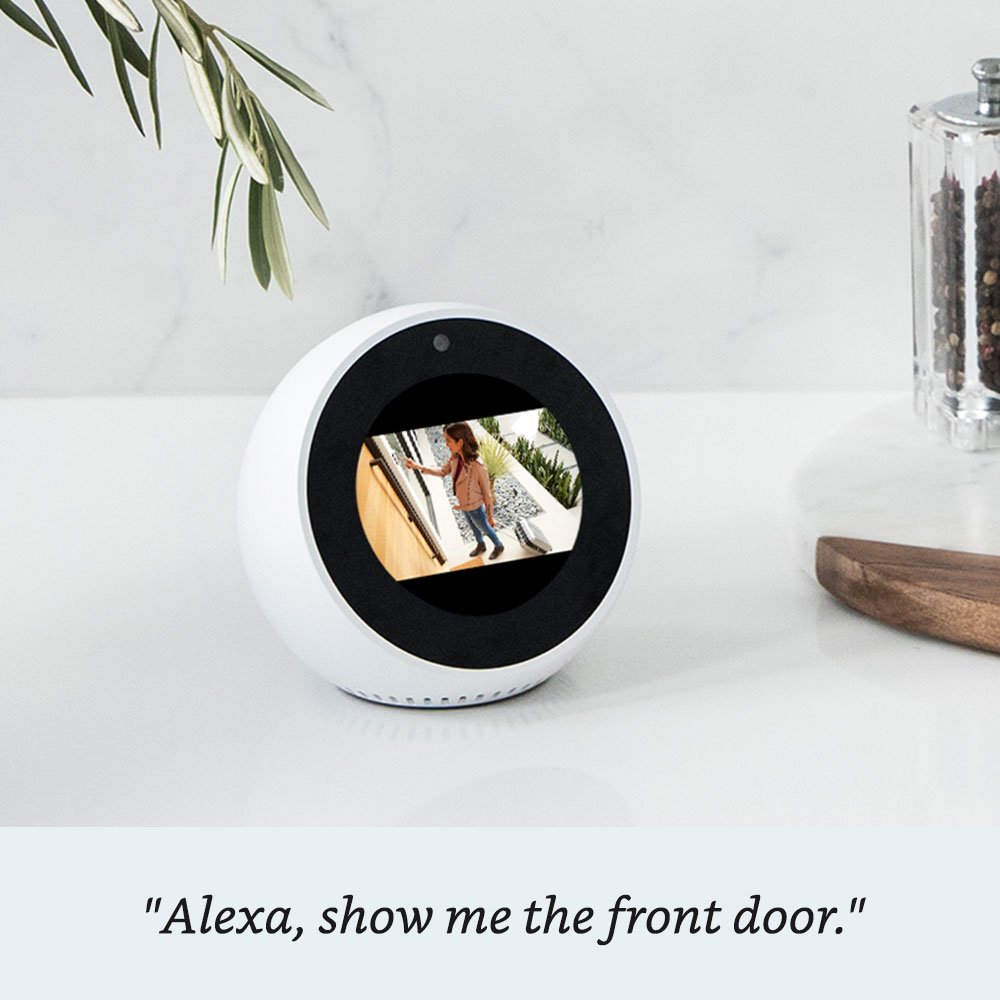We hope you love the products we recommend! Just so you know, Trendy Mami may collect a share of sales or other compensations from the links on this page.
–
Smart speakers, AKA voice assistants, have increased in popularity over the last few years. These small, unassuming canisters can do many tasks that include playing music, ordering online (even pizza!), controlling home devices (e.g. security systems, sprinklers, lights, and thermostats), and of course answering random questions.
If you’re a parent, you may find that smart speakers are also useful for children. Many smart speaker owners with children purchase their devices for the purpose of entertaining them.

Picture this: you just got home from work and are frantically trying to get dinner on the table. Your child is doing homework and needs help. They can ask you what year Marie Curie died, thus distracting you and delaying dinner. Or, they can direct their question to Alexa, Amazon’s voice assistant and receive a response in seconds (the answer is 1934).
Sounds great, right? Some parents feel that smart speakers are a godsend. However, there is a growing concern among child psychologists and developmental experts regarding children’s usage of smart speakers. Are they harmful in the long run, or are they a helpful technological tool? Let’s look at the benefits and potential problems for children using smart speakers.

PROS OF SMART SPEAKERS
Parental Assistant in a Small, Metal Box
Helping children with their homework and playing their favorite music is only the tip of the iceberg for voice assistants. Google Home and [easyazon_link identifier=”B015TJD0Y4″ locale=”US” tag=”twkmobile-20″]Amazon Echo Dot[/easyazon_link] devices also (with subscription) play games, ask fun trivia questions, and read bedtime stories.
Alexa can even make them laugh by telling jokes. Meanwhile, parents can set controls for filtering out music with explicit lyrics, alarms for getting up in the morning, checking the door, turning off the lights, and calendar events. It’s no wonder that more and more parents are buying smart speakers for their home.
[easyazon_link identifier=”B073SRJD46″ locale=”US” tag=”twkmobile-20″] [/easyazon_link]
[/easyazon_link]
A Natural Step in Tech Education
Children have always been drawn to technology. What child can resist gadgets that talk and have blinking lights? At its core, smart speakers are not very different from computers or even TVs. They all provide hours of entertainment for kids, which allow their parents to take a breather.
However, unlike TVs that provide passive entertainment, or video games which provide one-direction interaction, smart speakers offer reciprocal interaction. This reciprocal interaction is what makes voice assistants extremely appealing to children, as some almost think of them as a robot friend.
In fact, according to one study, 22% of parents said that they considered their virtual assistants as a member of the family.

CONS OF SMART SPEAKERS
Privacy Issues
The biggest concern consumers have about smart speakers is related to privacy. With the recent Facebook privacy breach, the public is more concerned than ever as to how companies are handling their personal information. A recent study on smart speaker owners revealed that only 30% have ever used their devices to make purchases because of privacy concerns.
Parents are often very protective of their children’s privacy. It’s understandable, that a machine designed to always be listening and accumulating data can make them nervous. Toy giant Mattel attempted to enter the smart speaker market with its device called Aristotle.
It was designed to learn and evolve as the child grows, so in a sense studying that child with its camera and microphone. After developmental experts, parents, and child advocacy groups voiced privacy concerns among other issues, Mattel decided to scrap their device .

Societal Implications
The second main concern people have about children using voice assistants is how it may affect their social development. For example, children have been found to attribute human characteristics to smart speakers. This worries some experts, who believe that it can potentially confuse very young children, or stunt their ability to interact with actual humans.
Others are worried that the very nature of giving a smart speaker orders promotes rude behavior. To counter this, Amazon’s newly released [easyazon_link identifier=”B077JFK5YH” locale=”US” tag=”twkmobile-20″]Echo Dot Kids Edition[/easyazon_link] will have a “magic word” function in that if a child says “please” when giving a command, Alexa will praise the child and thank them for doing so.
KNOW YOUR KIDS’ ELECTRONIC DEVICES

Ultimately, it’s the parents’ responsibility to monitor their children’s usage of smart speakers, let alone choose to purchase one in the first place. Like TV and video games, smart speakers shouldn’t be used as electronic babysitters but rather as parental aides their children use on occasion.
Smart speaker owners in general should be aware of their device’s functions and understand how to set certain restrictions. For example, if you’re concerned about security, don’t teach it your passwords and credit card number. And don’t forget that you can always mute the mic!
Do you have cool gadgets at home that you use? Please share with our readers on what is most helpful for parenting!












